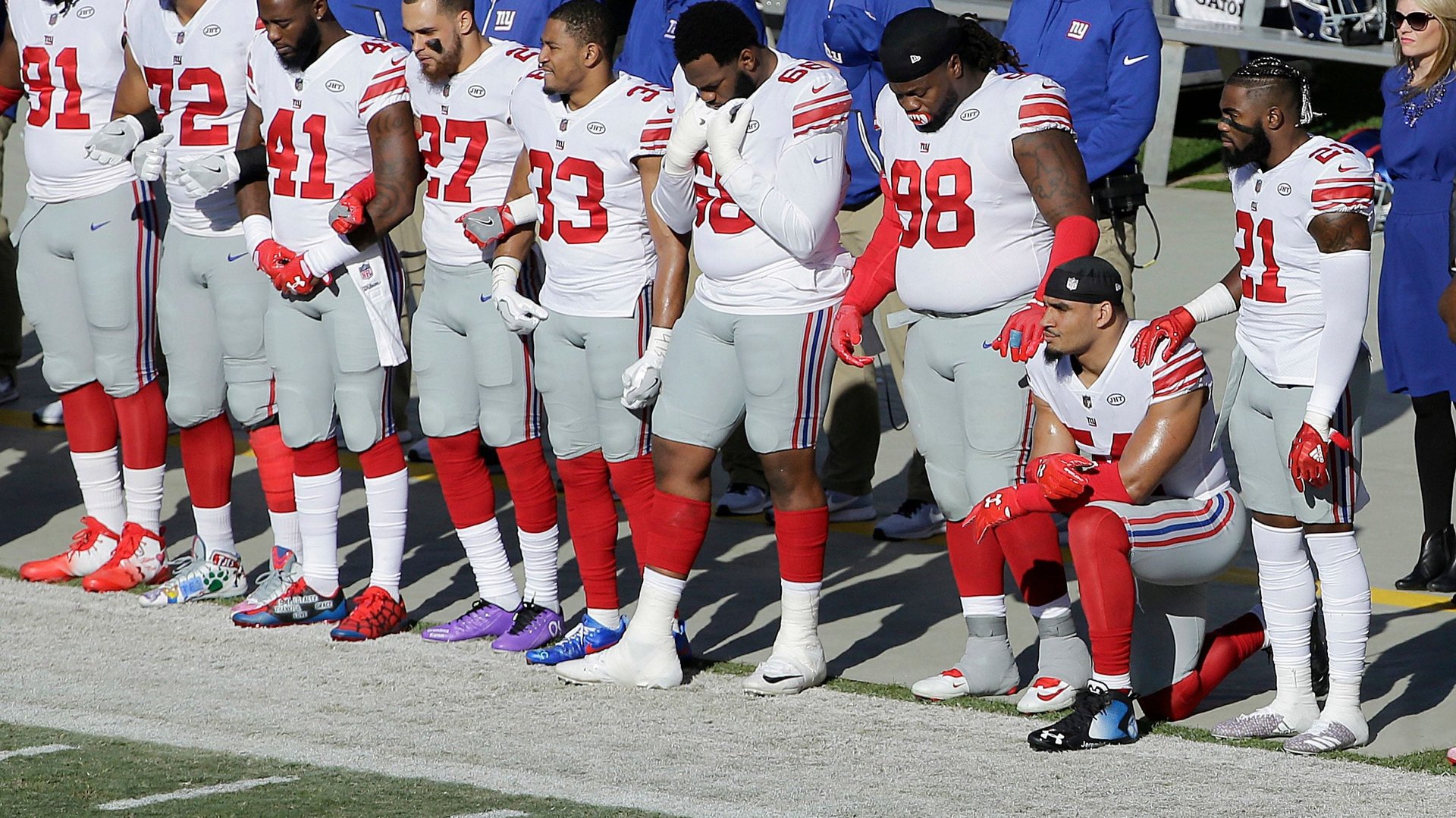The NFL’s new policy on the national anthem is a rejection of the modern workplace
The NFL is hoping to end years of controversy over player protests with a policy explicitly requiring players to stand during the pre-game playing of the US national anthem.


The NFL is hoping to end years of controversy over player protests with a policy explicitly requiring players to stand during the pre-game playing of the US national anthem.
The new rules announced today (May 23) exempt players from having to be on the field for the anthem. If they want to kneel in protest, they’ll have to do it off the field and out of sight of the cameras. The league will punish players on the field “who do not stand and show respect for the flag and the anthem,” while individual teams can create their own rules consistent with the NFL policy.
As a matter of strategy, the new policy is shrewdly cynical, because it starves the movement, started by quarterback Colin Kaepernick in 2016 as a protest against police brutality, of the oxygen it needs to grow. A public protest hidden from the public might as well not exist.
As a matter of workplace policy, the new rules are an abrupt throwback to a pre-modern era, where factory owners and managers dictated codes of appearance and behavior, and individual expression was stifled. It feels all the more regressive in an era when a growing number of employees work from home, use the rest room of their choice, and wear what they please. Even a company as tradition-bound as General Motors has scrapped its elaborate rules about appearance with a two-word dress code: “Dress appropriately.”
It’s not surprising the NFL would go a different route. While the NBA has supported the free expression of its players, the NFL—with its love of hierarchy and command-and-control culture—has always been the most conservative of the North American major sports leagues. Rather than risk alienating sponsors and older fans—US president Donald Trump among them—the NFL is instead cracking down on its players’ individuality.
The NFL is banking on its players knuckling under, because it knows they have few other options to earn millions playing football, and it believes—probably correctly—that by the season opener in September, any remaining controversy will have died down. Pro football will have successfully put down the players’ modest rebellion, but will have made itself that much more repressive in doing so.